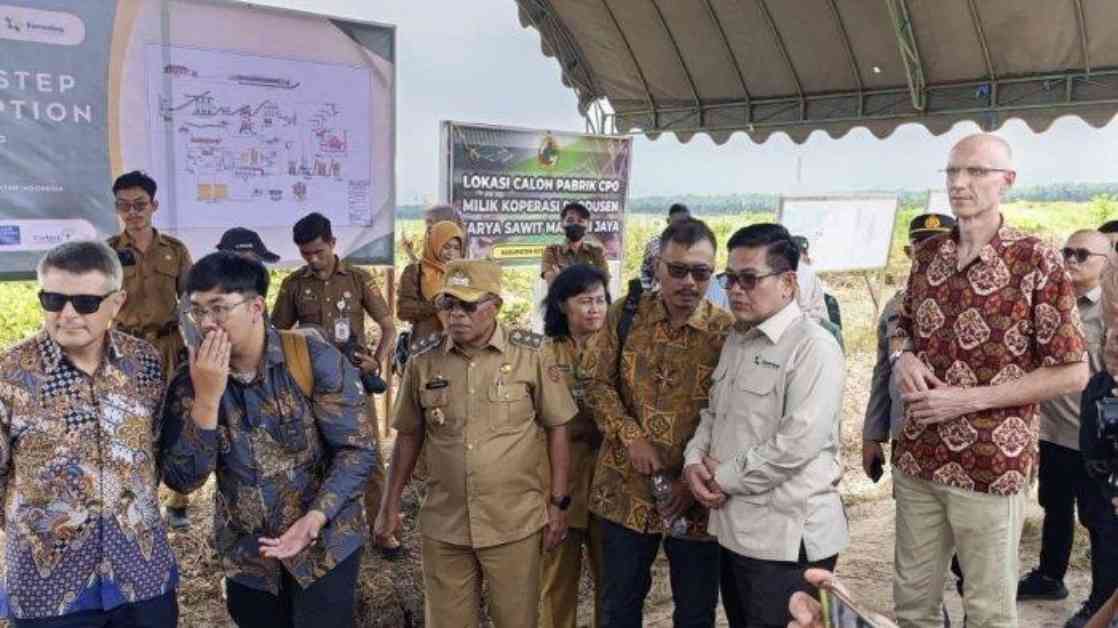So, like, the role of cooperatives in the national palm oil industry has been emphasized as a strategic instrument to strengthen farmers’ bargaining positions and expand access to the global market. The Deputy of Cooperative Business Development at the Ministry of Cooperatives and Small and Medium Enterprises (Kemenkop UKM), Panel Barus, stated that cooperatives are a key factor in promoting a fair, sustainable, and farmer-powered palm oil industry. This statement was made by Panel during the launch of the EU SWITCH: PALMSTEP program in Kotawaringin Barat, Central Kalimantan, on Tuesday (6/5/2025).
The program, initiated by the European Union through Agriterra and Fortasbi, will run from 2025 to 2030, with a primary focus on strengthening sustainability and traceability of the smallholder palm oil value chain. “Farmers should not continue to be in a weak position in the value chain. Cooperatives are a strategic instrument to strengthen their bargaining position and expand their market access,” said Panel Barus, as stated in a written statement.
He mentioned that PALMSTEP will encourage the establishment of palm oil farmer cooperatives with their own Crude Palm Oil (CPO) mills. This step is believed to provide price certainty and buyers for cooperative members, while also reducing the dominance of middlemen. “Once there are CPO mills owned by cooperatives, farmer members of the cooperatives will get buyer certainty and prices,” he emphasized.
Panel also referred to the direction of Indonesian President Prabowo Subianto, who targets the establishment of 80,000 Red and White Village Cooperatives, as an integrated village distribution and production network. This program will be launched in conjunction with National Cooperative Day on July 12, 2025. “With the Red and White Village Cooperative network and programs like PALMSTEP, village products such as palm oil can access markets with good prices in Europe,” he added.
He further added that the cooperative collaboration model facilitated by the European Union in the PALMSTEP program reflects the future of international trade based on partnerships between cooperatives. “I hope the results of PALMSTEP will lead to continued trade cooperation between Indonesian cooperatives and EU countries. Whatever food products Europe needs, they can be provided by the Red and White Village Cooperative network,” Panel said.
Until the end of 2024, data from the Ministry of Cooperatives recorded approximately 2,500 active plantation cooperatives with nearly 900,000 members and a total business value of Rp7.94 trillion. Panel emphasized the importance of strengthening secondary commodity-based cooperatives, including palm oil, to accelerate the national industry transformation from upstream to downstream.
The Ministry of Cooperatives also appreciated the establishment of the Independent Palm Work Cooperative (KSMJ), which is expected to become a model for palm oil farmer cooperative institutions. KSMJ is encouraged to apply sustainability principles, good governance, and open access to domestic and export markets.
During his visit, Panel, along with the European Union Ambassador to Indonesia Denis Chaibi and Deputy Regent of Kotawaringin Barat Suyanto, inspected the location where the CPO mill owned by KSMJ would be established. The ministry hopes that this international cooperation can be expanded not only for palm oil commodities but also to other sectors that are village specialties.














